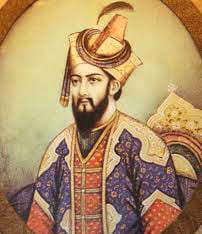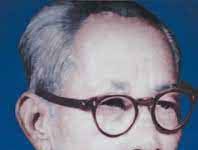Aurangzeb | Brief Biography
Aurangzeb | Brief Biography
Aurangzeb (Alamgir) was the sixth Mughal emperor who ruled India from 1658 to 1707. He was born on October 24, 1618, in Dahod, Gujarat, India, to Mughal Emperor Shah Jahan and his wife Mumtaz Mahal. He was the third son of the emperor and the sixth child overall. Aurangzeb was known for his military prowess, administrative skills, and religious zeal. However, his rule was also marked by religious intolerance and political repression.
Aurangzeb’s early life was spent in the court of his grandfather, Emperor Jahangir, where he received an education in Islamic theology, Arabic, Persian, and the Quran. He was appointed governor of the Deccan in 1636, where he spent the next 20 years fighting rebellions and expanding the Mughal Empire. In 1658, he overthrew his father and declared himself emperor.
One of Aurangzeb’s most significant military achievements was the annexation of the kingdoms of Golconda and Bijapur in southern India. He also waged a successful campaign against the Marathas in western India, but his efforts to conquer the Deccan plateau were less successful. He was also involved in several military conflicts with the Safavid Empire of Persia.
Aurangzeb’s rule was marked by his strict adherence to Islamic law and his intolerance of other religions. He reimposed the jizya tax on non-Muslims and destroyed several Hindu temples. He also banned music, dance, and other forms of entertainment. His policies led to widespread unrest and rebellion, particularly among the Hindu population.
Aurangzeb was a prolific builder and constructed several significant monuments, including the Badshahi Mosque in Lahore, the Moti Masjid in Delhi, and the Bibi ka Maqbara in Aurangabad. He also commissioned the translation of several Sanskrit texts into Persian.
Aurangzeb died on March 3, 1707, in Ahmednagar, Maharashtra, India, at the age of 88. He was succeeded by his son, Bahadur Shah I. 0 0 0.
Sources:
The Cambridge History of India, Vol. IV, The Mughul Period, edited by W. Haig (Cambridge University Press, 1937)
Aurangzeb: The Man and the Myth by Audrey Truschke (Penguin Random House India, 2017)
The Mughal Empire by John F. Richards (Cambridge University Press, 1995). ***
Aurangzeb Brief Biography
N.B. This article originally belongs to the book entitled ‘Brief Biographies of Eminent Generals and Conquerors’ by Menonim Menonimus.
Books of Biography by M. Menonimus:
- The World Writers-Brief Biographies
- Introduction to World Writers
- Introduction to World Personalities
- Love of Reputed Persons
- Brief Biographies of Prominent Bengali Writers
- Brief Biographies of Eminent Monarchs
- Brief Biographies of Ancient Thinkers and Writers
- Brief Biographies of Eminent Generals and Conquerors ..
Books of Literary Criticism by M. Menonimus:
- World Short Story Criticism
- World Poetry Criticism
- World Drama Criticism
- World Novel Criticism
- World Essay Criticism
- Indian English Poetry Criticism
- Indian English Poets and Poetry Chief Features
- Emily Dickinson’s Poetry-A Thematic Study
- Walt Whitman’s Poetry-A Thematic Study
- Critical Essays on English Poetry
- Tawfiq al-Hakim’s Novel: Return of the Spirit-An Analytical Study
- Tawfiq al-Hakim’s Novel: ‘Yawmiyyat Naib Fil Arayaf’-An Analytical Study
- Analytical Studies of Some Arabic Short Stories
- A Brief History of Arabic Literature: Pre-Islamic Period (500 AD-622 AD)
- A Brief History of Arabic Literature: Early Islamic Period (622 AD-661 AD)
- Reviews on William Shakespeare’s Works
- Reviews of Charles Dickens’ Works
- Reviews of John Milton’s Literary Works
- Reviews of Some Iconic Travelogues …
Additional Searches:











